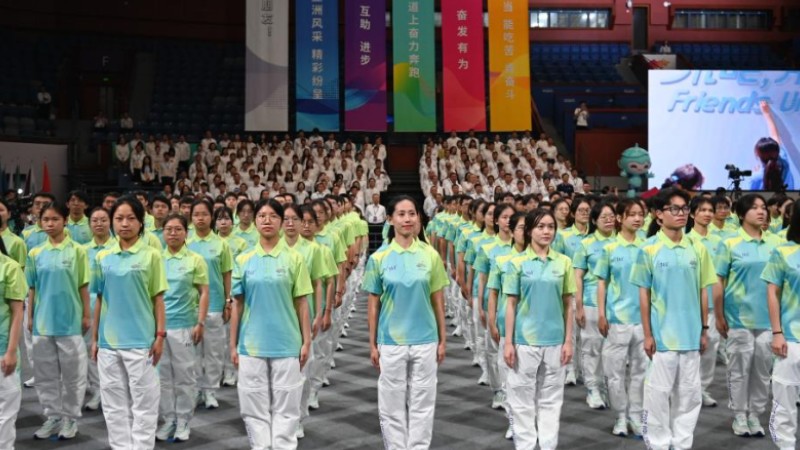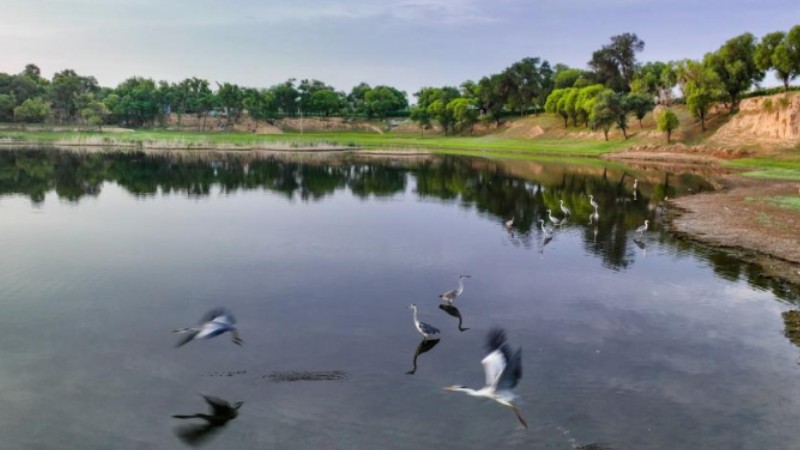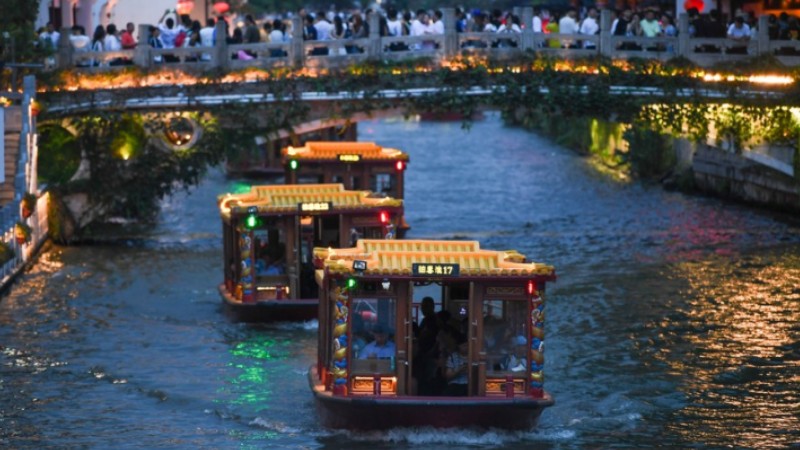S. Korean opposition lawmakers march against Japan's nuke wastewater dumping
SEOUL, Aug. 25 (Xinhua) -- Lawmakers of the South Korean main opposition Democratic Party marched in downtown Seoul on Friday to express their strong opposition to Japan's dumping of nuclear-contaminated wastewater into the ocean.
The lawmakers gathered at Gwanghwamun Square in central Seoul, holding placards that read "Don't kill the ocean of life," and "Withdraw Fukushima nuclear-contaminated wastewater dumping."
The gathering came a day after Japan started discharging the first batch of radioactive wastewater from the crippled Fukushima Daiichi nuclear power plant into the Pacific Ocean.
"Japan threatened humanity all over the world with guns and swords during World War II. This time, it is committing terrorism by harming the environment and threatening the health of humankind around the world to save money," Lee Jae-myung, leader of the Democratic Party, told reporters.
Lee urged Tokyo to opt for other approaches, such as storing it on land, rather than the detrimental and much-criticized marine dumping which sparked waves of opposition in neighboring countries.
"Japan dump (the wastewater) into the ocean to save money, so can't we tell them to store it on land with the money we pay? Japan's dumping of nuclear-contaminated wastewater is a crime against humanity," Lee noted.
Together with Seoul residents, the Democratic Party lawmakers marched around 5 km from the square to the presidential office, shouting slogans of "Stop marine dumping" and wearing a shoulder strap printed with "Stop dumping nuclear-contaminated wastewater."
Near the presidential office, the lawmakers also used scissors to tear apart a long yellow cloth marked with radiation danger, a demonstration of their demand to cut off the passage of the radioactive wastewater from Japan.
Kim Yong-min, a Democratic Party lawmaker, said the party's protest rally was staged to pressure the South Korean government to properly raise voice over the discharge in the international community and take all possible measures such as a lawsuit with the International Tribunal for the Law of the Sea against the Japanese government.
"At 1:00 yesterday afternoon, Japan released Fukushima nuclear-contaminated wastewater, and I came out here because I couldn't stand it now," Nam Jong-seob, a member of the Gyeonggi provincial assembly, told Xinhua.
Nam said the entire ocean would eventually be contaminated by the Fukushima wastewater, vowing to make efforts to prevent it by doing a lot of resistance movements.
"The ocean is a common asset of humankind. No country has the right to monopolize it, nor should it. The ocean is not solely owned by our current generation. I think our present task is to pass it on to future generations devoid of damage as much as possible," Kim Seo-jin, a civic activist, told Xinhua.
Kim believed South Korean people would boycott Japanese fishery products as it was the only thing people could do to express their opposition to the Japanese government.
Hit by a massive earthquake and an ensuing tsunami in March 2011, the Fukushima power plant suffered core meltdowns and generated a massive amount of water tainted with radioactive substances from cooling down the nuclear fuel.
Photos
Related Stories
- China suspends all aquatic products from Japan over Fukushima contaminated water dumping
- Japanese rally against nuclear-contaminated wastewater discharge
- Feature: "Keep our Pacific nuclear-free!" -- Fijians rally against Japan's dumping of nuke wastewater
- Interview: Japan's nuclear wastewater dumping threatens human health, global ecosystem: Pakistani expert
- S. Koreans protest against Japan's nuke wastewater discharge
Copyright © 2023 People's Daily Online. All Rights Reserved.









